Nội Dung Chính
(Page 102)
II. LANGUAGE
Pronunciation
Assimilation
💡Remember!
Assimilation is a process in which a sound is changed into another because of the influence of a neighbouring sound. Below are some typical cases of assimilation.
| Sound ... | before ... | becomes ... | Examples |
| /n/ | /p/ , /b/ , /m/ | /m/ | on purpose /ɒm 'pə:pəs/ in bed /im 'bed/ in May /im 'mei/ |
| /t/ | /p/ , /b/ , /m/ | /p/ | hot potato /'hɒp pǝ'teitǝʊ/ not bad /'nɒp 'bæd/ that man /'ðæp 'mæn/ |
| /d/ | /p/ , /b/ , /m/ | /b/ | bad penny /'bæb 'peni/ good boy /'gʊb 'bɔi/ red meat /'reb 'mi:t/ |
| /θ/ | /s/ | /s/ | math solver /'mɒs 'solvǝ/ |
1. Listen and repeat the examples above. Pay attention to the highlighted sounds. 🎧
2. Listen and underline the parts where assimilation occurs. Then practise reading the sentences in pairs. 🎧
1. Apes are larger than monkeys.
2. If fed properly, the bear will recover soon.
3. Both species benefit from living together.
4. Ten per cent of the world's population was infected by the virus.
Vocabulary
Conserving wildlife
1. Match the words with their meanings.
| 1. extinct (adj) | a. to continue to live or exist, usually despite difficulty or danger |
| 2. survive (v) | b. the situation in which a person or animal is kept somewhere and is not allowed to leave |
| 3. captivity (n) | c. to protect the natural environment |
| 4. conserve (v) | d. when a particular type of plant or animal stops existing |
| 5. rare (adj) | e. not common or frequent; very unusual |
(Page 103)
2. Complete the sentences using the words in 1.
1. Wild animals need to live in their natural habitats in order to _____.
2. Many _____ animals are in urgent need of protection.
3. Scientists estimate that every day around 150 species become _____.
4. All the animals looked well after being released from _____.
5. A new law has been introduced to _____ wildlife in the area.
Grammar
Adverbial clauses of condition and comparison
💡Remember!
• An adverbial clause of condition gives the potential outcome of a situation or condition, real or imagined. It uses subordinating conjunctions such as if, provided that, until, or unless.
Example:
What would you buy if you won the lottery?
We can't release injured animals into the wild unless they are treated and fully recovered.
• An adverbial clause of comparison describes how something such as a skill, size, or amount compares to something else. It uses subordinating conjunctions such as than, as... as, or as.
Example:
There are more endangered species today than there were 50 years ago.
Gibbons are as famous for their beautiful singing as they are for their swinging movements through the trees.
1. Combine the sentences using adverbial clauses of condition or comparison. Use the conjunctions in brackets and make any necessary changes.
1. You must release the sea turtle into the sea. Otherwise, it will die soon. (if)
-> __________________________________________________________________________.
2. Raising people's awareness is important to preserve wildlife. Imposing strict laws is also important. (as... as)
-> __________________________________________________________________________.
3. We must stop poaching. Otherwise, many endangered species will become extinct. (unless)
-> __________________________________________________________________________.
4. A monkey is very intelligent. You may not think it is. (more ... than)
-> __________________________________________________________________________.
2. Work in pairs. Make sentences about endangered animals using adverbial clauses of condition or comparison.
Example:
Punishment for hunting endangered animals is not as harsh as it should be.
If we don't protect giant pandas, they will soon become extinct.
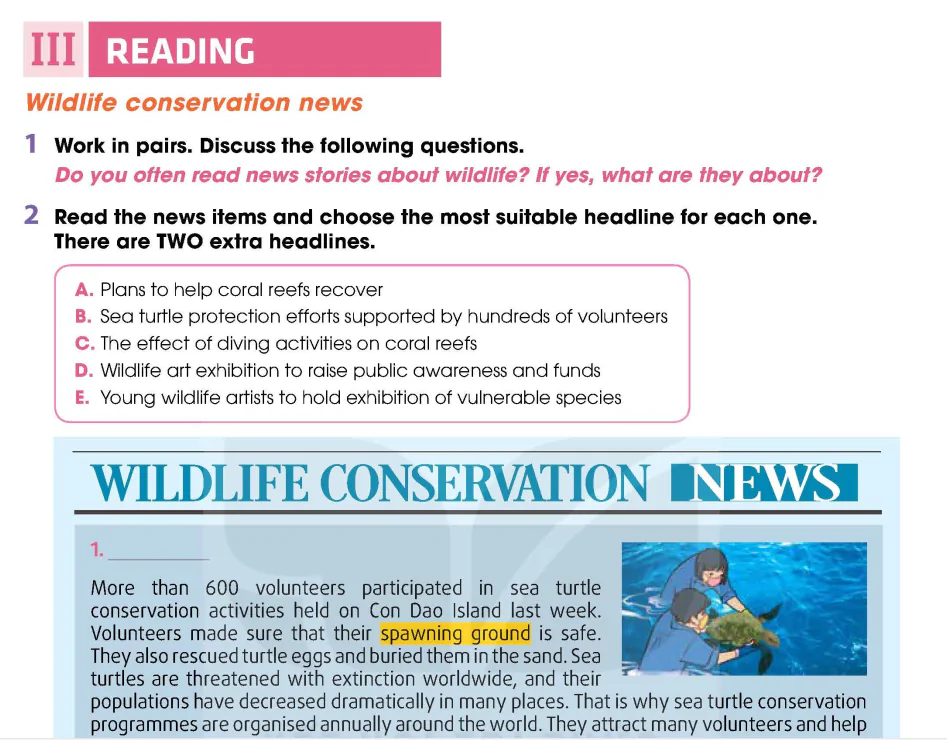
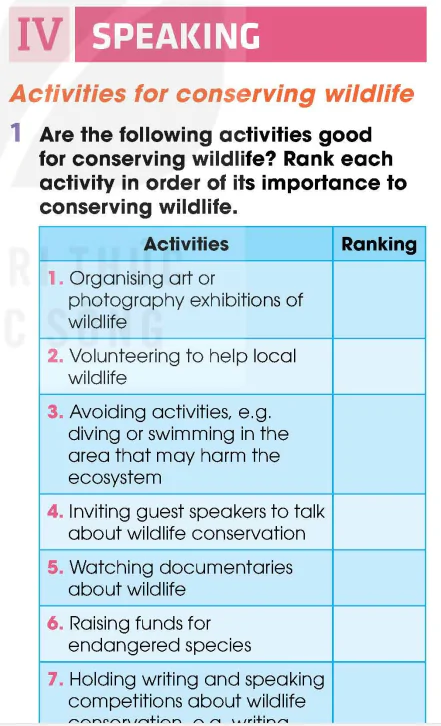


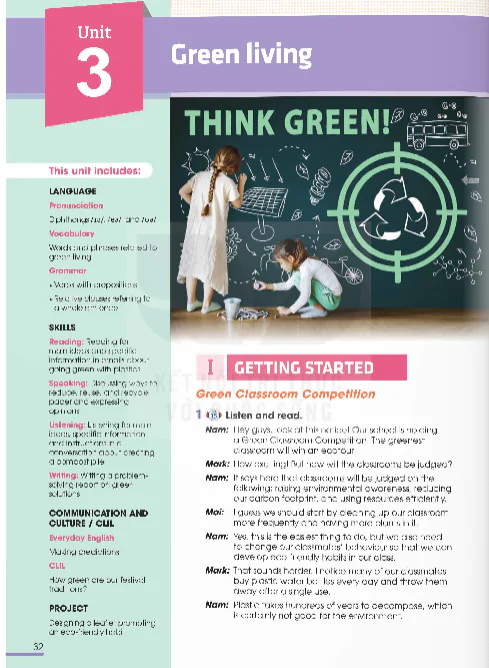
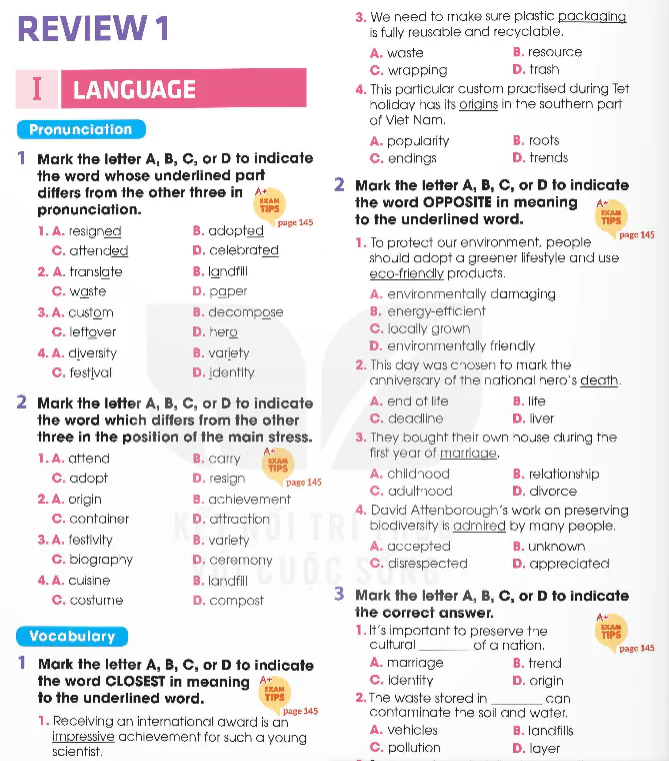
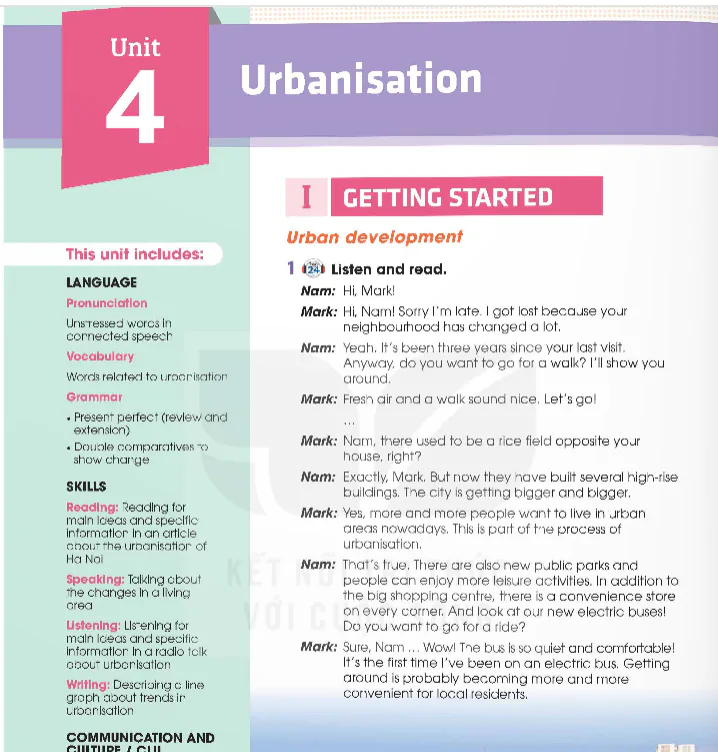

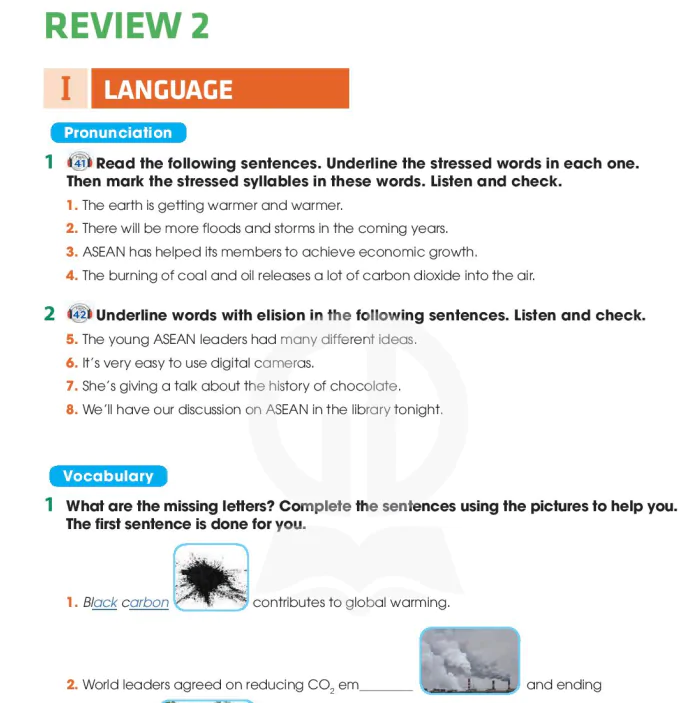

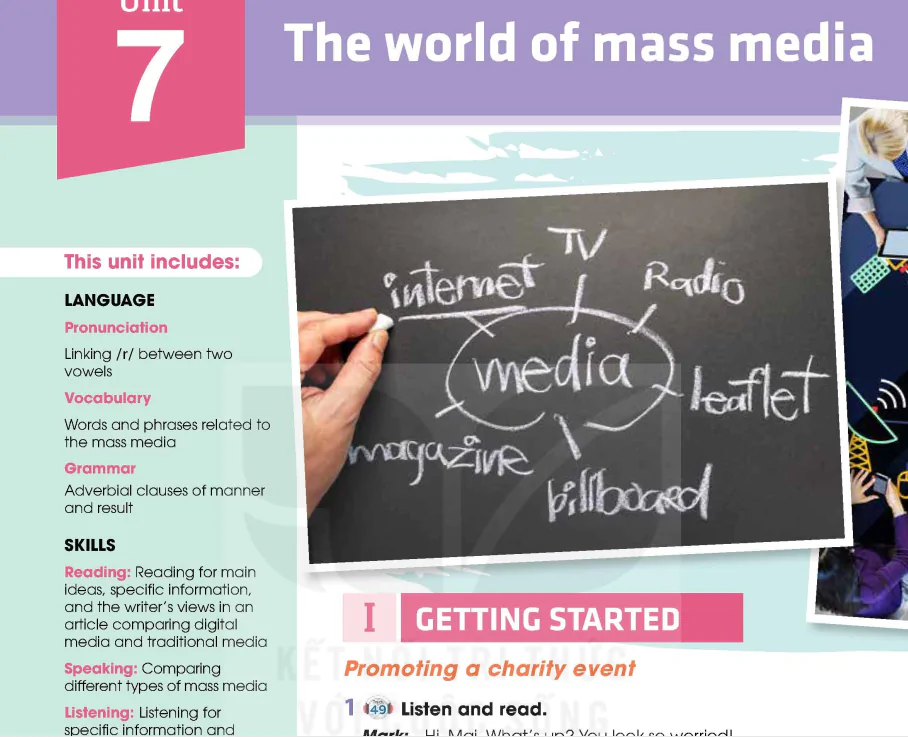
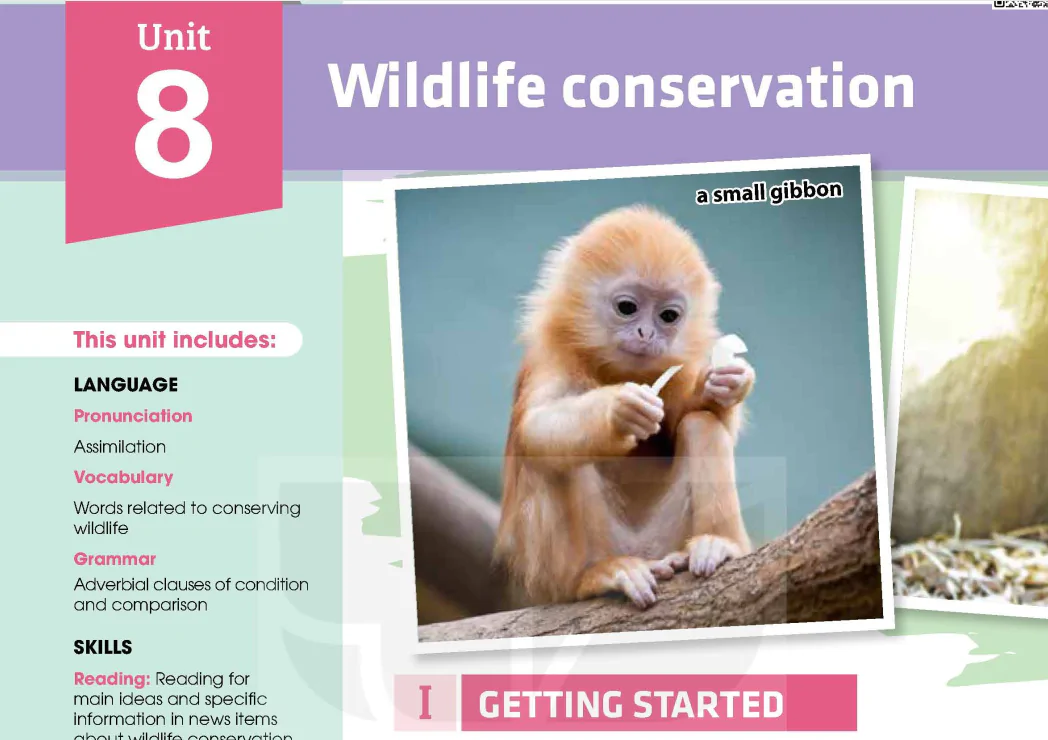
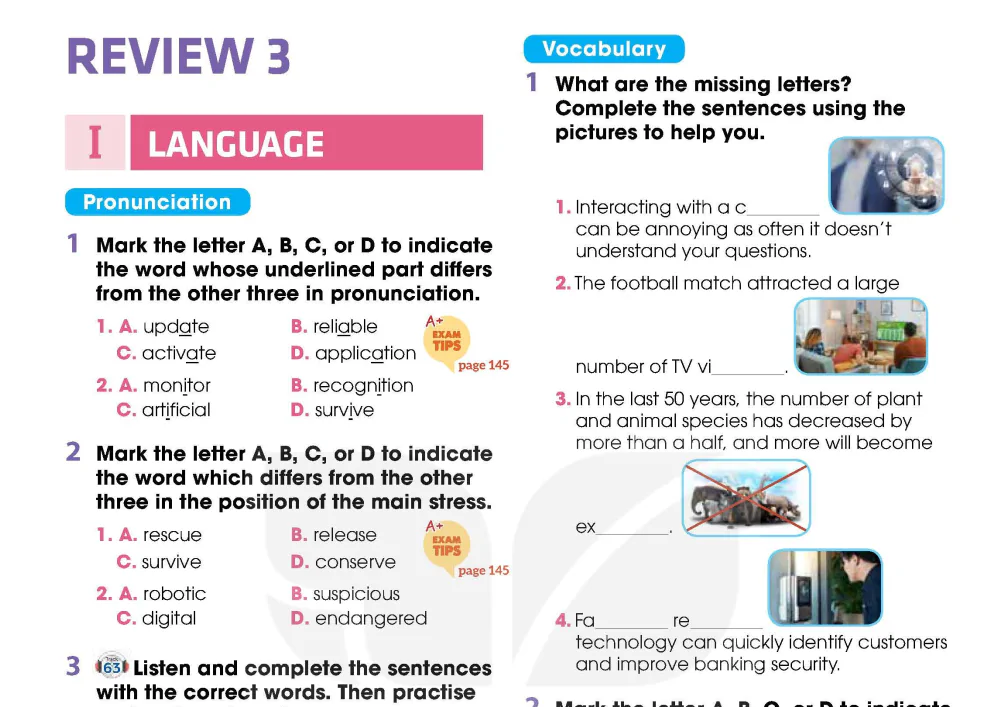


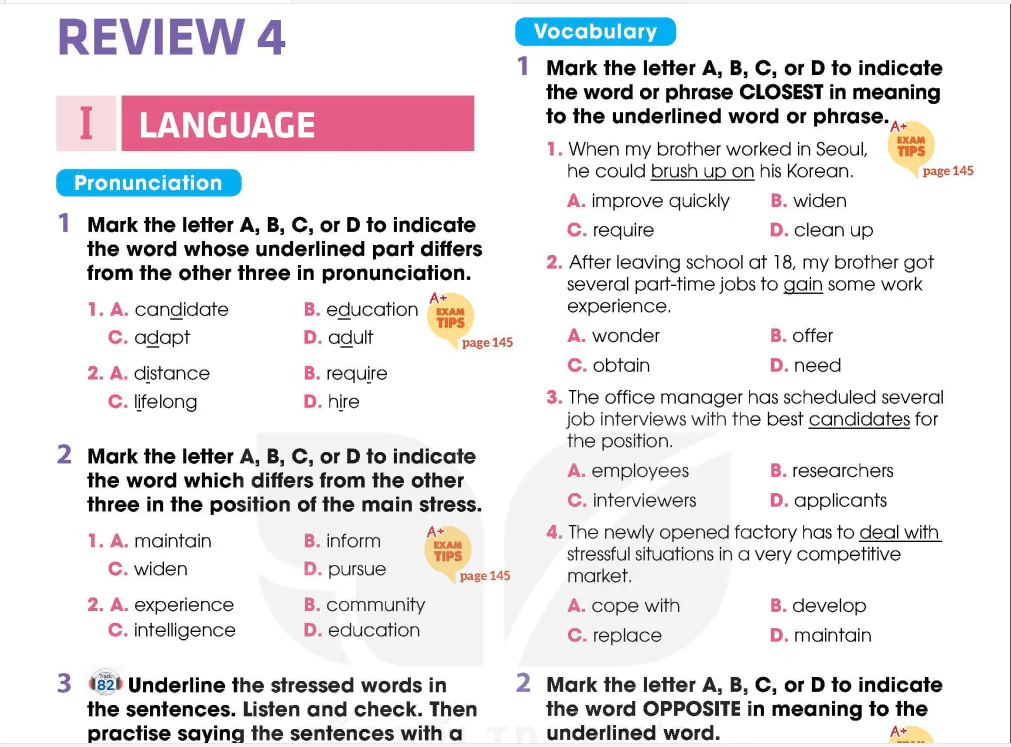
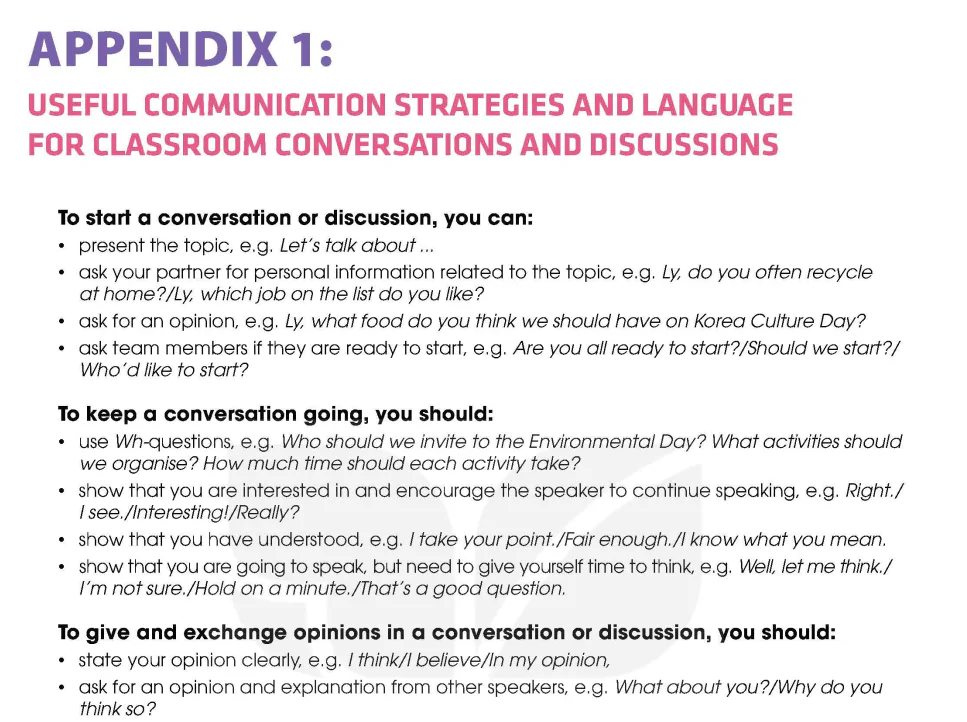
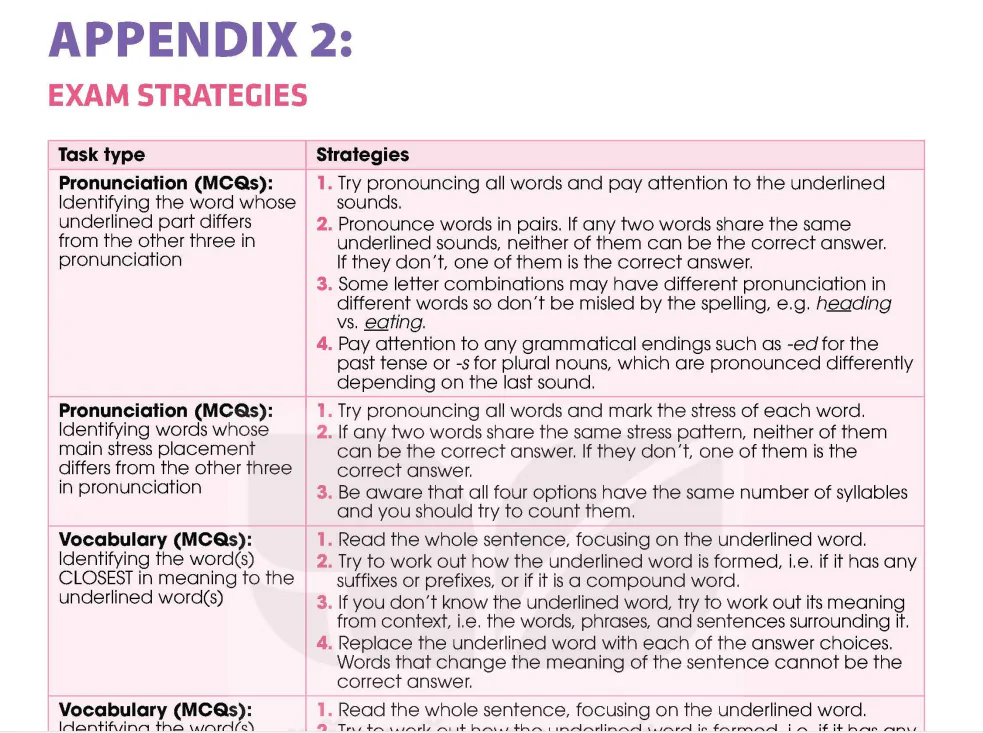
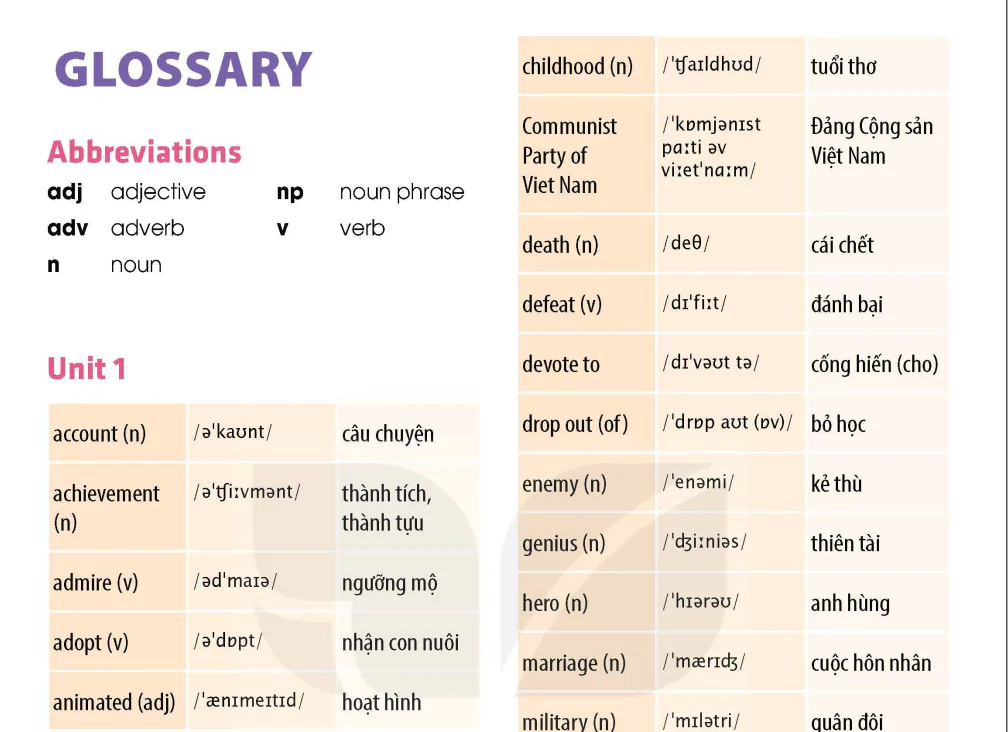


















Bình Luận
Để Lại Bình Luận Của Bạn